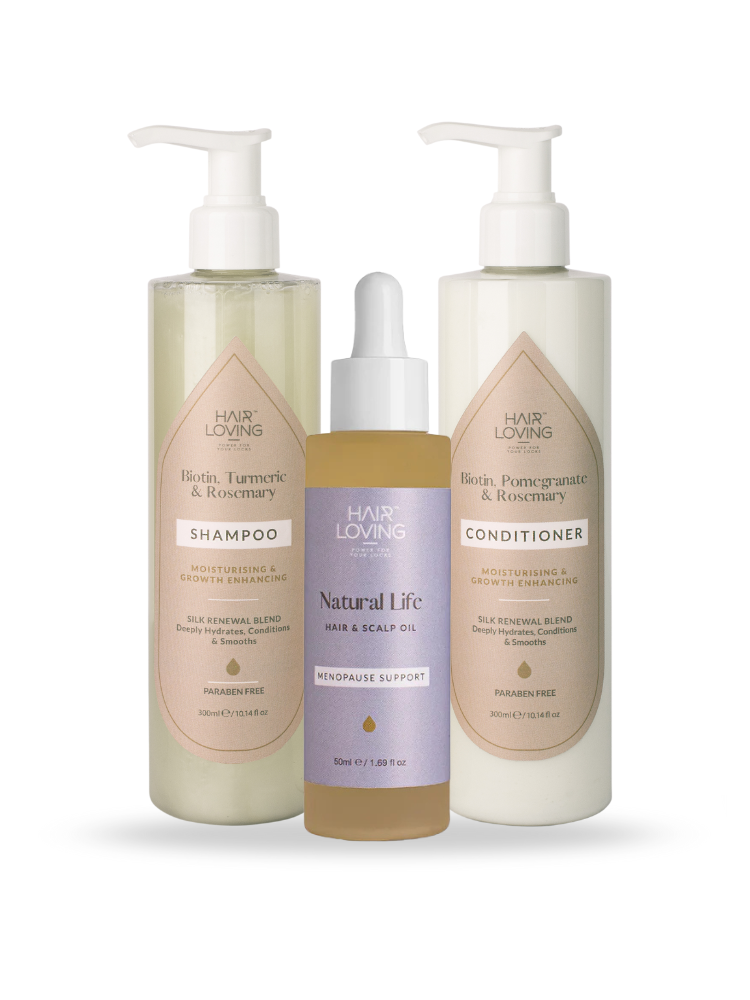Vitamin E is a fat-soluble nutrient that is available from several food sources as well as in supplement form. At Hair Loving we believe that vitamin E has a positive impact on hair health.
What is vitamin E known for?
Vitamin E is best known for its antioxidant properties that help reduce free radical damage and protect the body’s cells. Although you can find it in the supplement aisle, many companies add vitamin E to their beauty products. And for good reason!
Vitamin E has been used in dermatology since the 1950s to help protect the skin against age-ing, inflammation, and sun damage. The fat-soluble antioxidant is vital for maintaining healthy skin and a strong immune system.
Recently, vitamin E has been hailed as a cure-all to turn frizzy, damaged, unmanageable hair into shiny, luscious locks worthy of a shampoo commercial — or a sun-soaked Instagram image.
Keep reading to learn how the skin-boosting properties of vitamin E may be used to improve hair health and promote growth.
What can vitamin E do for your hair?
Early research suggests that vitamin E can help improve overall scalp and hair health. More studies are needed to truly understand its possible benefits.
Prevent hair loss
A small trial from 2010 found that vitamin E supplements improved hair growth in people with hair loss. It’s thought that the vitamin’s antioxidant properties helped reduce oxidative stress in the scalp. Oxidative stress has been linked with hair lossTrusted Source.
Improve scalp circulation
Vitamin E may increase blood flow, which is said to improve hair health. Researchers in one 1999 study found that high doses of vitamin E increased blood flow to the eyes in people with type 1 diabetes.
A separate 2001 study found that increased blood supply encouraged hair growth and increased the hair follicle and size in mice.
However, more research is needed to see if vitamin E directly affects blood supply to the scalp and if so, what that means for hair growth.
Balance oil production
Vitamin E is important for creating a protective barrier on the skin’s surface. This barrier helps lock in moisture. Dry, irritated skin can be a sign of vitamin E deficiency.
Although it’s unclear whether topical vitamin E can balance out scalp oil production, oils that contain vitamin E — like avocado oil — may help moisturise the scalp. They may also help prevent excess oil production.
Add shine
Hair can look dull and frizzy when it’s damaged. When the protective fat layer on the outside of the hair’s cuticle is removed, it loses its shine and becomes difficult to manage or style according to the Academy of Dermatology. A vitamin E-rich oil can help replace that protective layer and bring back shine. Oil in general also helps seal out moisture, reduce breakage, and protect the hair from damage.
Support a healthy scalp
Vitamin E is essential for healthy skin — and this includes your scalp. Poor scalp health is linked to lacklustre hair qualityTrusted Source. Vitamin E supports the scalp and gives your hair a strong base to grow from by reducing oxidative stress and preserving the protective lipid layer.
Vitamin E can be a great addition to your haircare arsenal, and you don’t need a fancy product to do so! The foods in your fridge are a great place to start.
Although you can find plenty of products that include the powerful antioxidant, it’s best to talk to your healthcare provider before using a vitamin E treatment or taking a supplement, especially if you have a hair, skin, or scalp condition.





